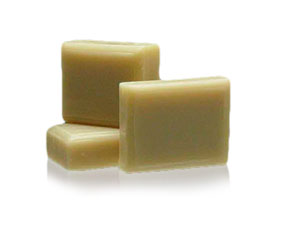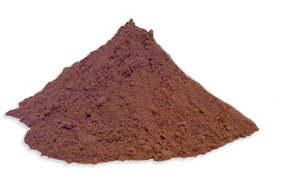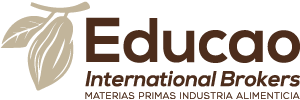
Cocoa beans are obtained from the Cocoa tree (theobroma cocoa). They come from cocoa pods which yield approximately 40 g dried beans each. The world's leading cocoa producers are:
· Ivory Coast
· Brazil
· Malasia
· Ghana
· Indonesia
· Nigeria
The type and quality of the grains depend on their origin.
Grains are dried, fermented and subjected to a peeling process from which the cocoa husks, a waste product, are obtained. At this stage, and depending on the production method, it is decided whether to alkalize cocoa beans by adding potassium, or not. The greater the amount of potassium, the darker the color of the powder.
 Once alkalized or not, cocoa beans are crushed by rollers that turn them into a liquid (at a controlled temperature) called cocoa liquor, which then undergoes the first high-pressure (450 kg/cm2) pressing process from which the cocoa butter (fat) and the cocoa cake or mass result. The percentage of fat contained in byproducts - cocoa cake or mass - depends on how long the cocoa liquor has been pressed. A total hygiene at the time of pressing is an absolute requirement to guarantee the sanitary quality of the product.
Once alkalized or not, cocoa beans are crushed by rollers that turn them into a liquid (at a controlled temperature) called cocoa liquor, which then undergoes the first high-pressure (450 kg/cm2) pressing process from which the cocoa butter (fat) and the cocoa cake or mass result. The percentage of fat contained in byproducts - cocoa cake or mass - depends on how long the cocoa liquor has been pressed. A total hygiene at the time of pressing is an absolute requirement to guarantee the sanitary quality of the product.
The cocoa butter is filtered, and then it undergoes a partial or complete deodorization process. The resulting product can be in liquid or solid state. The cocoa cake or mass is stored in different containers according to its type and fat content. It is grounded and mixed to obtain the desired byproduct degree. Later on, it is grinded into the different cocoa powders.
Educao,through its represented companies, provides its customers with the most complete range of cocoa byproducts from different origins. The companies represented by Educao have all the international certifications that guarantee the quality and stability of their commercialized products over time.
Cocoa liquor:As we have already seen, cocoa liquor is the primary byproducts of cocoa milling, and it is used specifically in the chocolate industry. Depending on the grain it comes from, it can be natural or alkaline.

Natural cocoa butter:or "pure cocoa butter and first-pressed" is the natural butter which has not undergone any other process required for its production other than the pressing one. It has a characteristic smell and its color ranges between the shades of yellow and orange.
It should not be confused with transparent butter, which is of inferior quality and must be called "refined", as it contains a high percentage of free fatty acids, or was produced from second quality grains.
Deodorized cocoa butter: It is the first-pressed cocoa butter that has undergone a vacuum distillation process that makes its characteristic odor disappear.
Cocoa cake:As we have already seen, the cocoa cake or mass is the byproduct resulting from the extraction of cocoa butter from cocoa liquor. This product is commercialized in Argentina to companies that have grinding systems (mills) and which are willing to obtain a certain milling standard.

Alkalized cocoa powder:Like natural powder, the alkaline powder which is mostly used in our country contains between 10 to 12% of fat and its main origin is Brazil. Depending on the supplier, it is identified by its color, from lighter to darker, as PA RL, PA Red Dutch, Petro PA Preto or black.
Natural and alkalized cocoa powder M-grade:These powders of Chinese origin are formulated especially for the baking, toppings, and ice cream industry. The raw material is of inferior quality and cannot be used for the preparation of cocoa-based beverages. Their price, standardized composition, and ISO 9001 certified quality make them attractive for the aforementioned uses.
Educao also provides its customers with natural and alkaline cocoa powder with 20% to 24% of fat content (high fat) from other sources.








